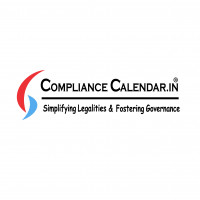RERA Registration Process for Real Estate Projects India

Strong 8k brings an ultra-HD IPTV experience to your living room and your pocket.
The Real Estate (Regulation and Development) Act, 2016, better known as RERA, was enacted to bring transparency, accountability, and efficiency to India’s real estate sector. Its core purpose is to regulate real estate transactions and protect the interests of homebuyers while promoting fair practices among builders.
Before RERA, homebuyers faced delays, hidden charges, and lack of legal recourse. With the introduction of RERA, the real estate landscape in India has become more structured and secure.
Who Needs RERA Registration?
Applicability for Developers
Every real estate developer, builder, or promoter undertaking a real estate project exceeding 500 sq. meters or 8 apartments, must register under RERA before advertising, marketing, or selling.
Projects Requiring Registration
• Residential or commercial projects under development.
• Ongoing projects without completion certificate before May 1, 2017.
• Plotted developments, group housing, or mixed-use developments.
Benefits of RERA Registration
Transparency and Trust
RERA mandates full disclosure of project plans, land status, layout approvals, and timelines. Buyers get real-time access to this information through the state RERA portals.
Legal Protection and Credibility
Developers gain credibility, while buyers enjoy legal remedies in case of project delays or quality issues. This fosters long-term trust and compliance.
Documents Required for RERA Registration
RERA registration requires multiple documents to validate the project and promoter details:
Developer Details
• PAN card
• Aadhar card
• Photograph and contact details
Project Details
• Project plan
• Layout plan and sanctioned plan
• Estimated project cost
Financial Details
• Bank account details for the 70% project fund allocation
• Audited balance sheets
Legal Approvals
- Title deed of the land
- •Encumbrance certificate
- Construction commencement certificate
- Legal ownership or development agreement
Step-by-Step RERA Registration Process in India
Step 1: Visit the State RERA Portal
Start by visiting the official RERA website of your respective state (e.g., https://maharera.mahaonline.gov.in).
Step 2: Create Login & Choose Project Type
Register as a “Promoter” or “Agent” and select the appropriate category of your project—residential, commercial, or mixed-use.
Step 3: Fill Application Form
Enter all required details:
• Project description
• Project start and end dates
• Promoter’s credentials
• Land title details
Step 4: Upload Documents
Attach the relevant supporting documents mentioned earlier in PDF format.
Step 5: Pay Registration Fee
Pay the fee online based on the size and type of your project. Each state has different fee structures.
Step 6: Application Review & Approval
The authority scrutinizes your application and may seek clarifications. Once verified, you’ll receive a RERA Registration Number and certificate.
State-wise RERA Portals in India
Here are a few popular RERA portals:
| State | Portal URL |
| Maharashtra | maharera.mahaonline.gov.in |
| Karnataka | rera.karnataka.gov.in |
| Delhi | rera.delhi.gov.in |
| Gujarat | gujrera.gujarat.gov.in |
Timeline for RERA Registration Approval
• Standard Time: 30 days from application.
• Delayed Cases: If not approved or rejected within 30 days, it is deemed registered.
Fees for RERA Registration
The registration fees are calculated based on:
• Type of development (residential/commercial)
• Land area
• Number of units
Example:
• Maharashtra: ₹10 per sq. meter for residential, ₹20 for commercial.
• Gujarat: ₹5-₹25 per sq. meter based on project type.
Common Mistakes to Avoid During Registration
1. Submitting Incomplete Documents
2. Incorrect Land Title or Ownership Proof
3. Wrong Project Timelines
4. Skipping Fee Payments
These errors can delay your registration or even lead to rejection.
Post-Registration Compliance
Once registered, the promoter must:
• Update project progress quarterly on the portal
• Maintain 70% of project funds in a separate bank account
• Submit annual audit reports and financial disclosures
Penalties for Non-Compliance
Failure to register or provide misleading information can result in:
• Penalty up to 10% of project cost
• Jail term up to 3 years
• Cancellation of registration and blacklisting
RERA Registration for Ongoing Projects
RERA mandates that ongoing projects without a completion certificate must also register. Additional disclosures include:
• Original and revised plans
• Status of pending approvals
• Progress of construction and funds utilized
How RERA Empowers Homebuyers
• Right to Timely Possession
• Interest on Delays
• Right to Refund in Case of Default
• Access to Information and Legal Forums
RERA confirms that buyers aren’t left in the dark and can hold developers accountable.
Final Remark
The RERA Registration Process for Real Estate Projects India is a necessary compliance measure that confirms ethical business practices, protects consumer interests, and builds confidence in India’s real estate ecosystem. By adhering to the process and maintaining post-registration transparency, developers not only fulfill legal requirements but also earn the trust of investors and homebuyers.
FAQs About RERA Registration
Q1: Is RERA registration mandatory for all projects?
Yes, if the project exceeds 500 sq. meters or 8 apartments.
Q2: Can a builder advertise without RERA registration?
No. Advertising or marketing before registration is punishable.
Q3: What happens if the project is delayed beyond the promised date?
The developer must pay interest to buyers and may face penalties.
Q4: Can buyers check project details online?
Yes, each state RERA portal allows buyers to check registered project details.
Q5: How long is RERA registration valid?
It's valid for the project completion timeline mentioned during registration.
Q6: Can a project be deregistered from RERA?
Yes, in case of fraud, violations, or upon project completion and compliance.
Note: IndiBlogHub features both user-submitted and editorial content. We do not verify third-party contributions. Read our Disclaimer and Privacy Policyfor details.


